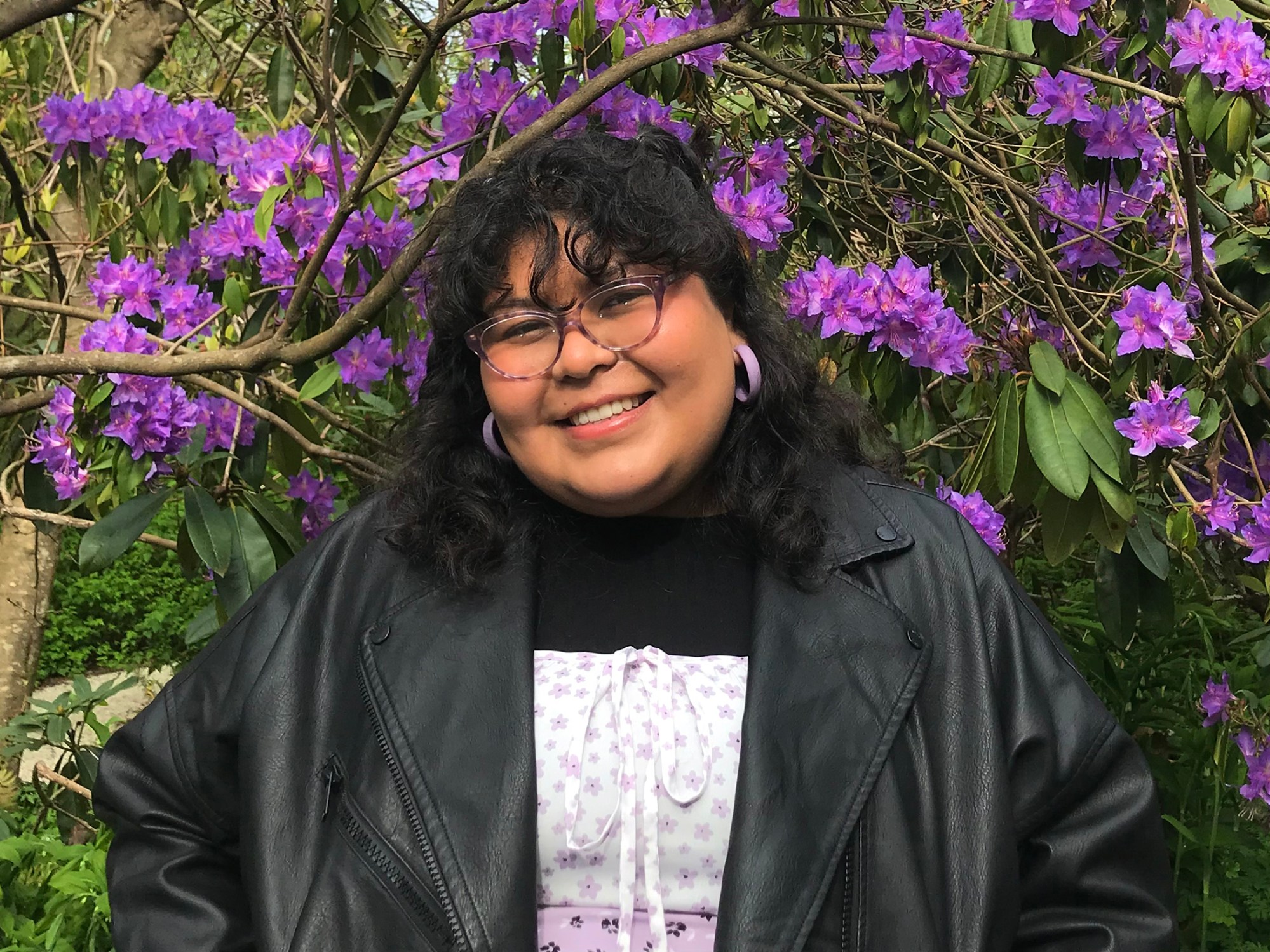
- HFPA
Sullyari Bautista on HFPA Grantee Justice For My Sister
When the HFPA requested an interview to mark Pride month with Justice For My Sister (JFMS) founder, Kimberly Bautista, the executive director politely declined. Not because she wasn’t eager to promote the arts-based non-profit organization that receives grant support from the HFPA, but because she was taking a hiatus to produce her own short film about a genderqueer family and taking that opportunity to also employ participants from her organization’s PA (Production Assistant) Certification Program which would help set them up with a career in the film and TV industry.
Inspired by Bautista’s 2012 documentary of the same name about femicide in Guatemala, the nonprofit organization began in Guatemala and expanded to Los Angeles in 2015, founded by a group of queer women of color who are survivors of gender-based violence. Its mission is to help train women of color, nonbinary youth, and foster youth to make films with a sense of racial justice and gender equity. As well as supporting first-time filmmakers, they also train and mentor many others in the LGBQTI+ community who have no financial support or access to learn the skills to work in film and TV. After Bautista returned to her film, she left us in the capable hands of her equally passionate JFMS Communications Coordinator, Sully Bautista (no relation).
How did the idea for the non-profit organization happen?
Kimberly made the documentary that focused on the femicide that happens in Guatemala and in central America and Latin America in general. There are many similar stories as the one highlighted in the documentary, but it follows this family seeking justice for their sister who disappeared and was murdered, and their journey to try and find out who to hold accountable. So when the organization was first created, it focused a lot on gender-based violence, like domestic violence and sexual assault, and it used the film as a catalyst for that work.
How meaningful is the work you do in the LGBTQI+ community?
The organization began with a focus on gender equity in Guatemala and once we expanded to Los Angeles, we included professional development for all filmmakers and others under that umbrella. I remember one example in 2015 when we got funding from the U.S. Embassy to train LGBTQI+ youth in short film productions. A trans woman in Guatemala made a documentary about her own struggle and as far as we know, she became the first trans woman in central America to direct her own film. There have been a lot of times where people have changed their pronouns or shared their transitioning stories with their fellow cohorts in our programs because of the safe space we’ve created there.
How heavy is it to work with people who have suffered such trauma?
We definitely touch on heavy topics pretty frequently and even in our youth classes through LA county parks, we try to approach curriculum through a trauma-informed lens and encourage conversation in a way that the people involved feel supported. Something Kimberly has done really well is try to balance those conversations of trauma with joy. We recently did a staff training on non-violent communication that included an exercise on healing our inner child to make sure that we can serve the youth to the best of our capacity.
Why did you extend programs to support not just filmmakers but job training in films?
We were looking to increase the representation of people behind the scenes because that’s just as important as seeing diversity on the screen. The job placement component is very important and that came to the organization because we have seen how in previous programs, there was a lot of value in building future opportunities for participants.
Who is a typical volunteer in your organization?
People who have been in our program as filmmakers are always trying to raise the profile of that community and there is a lot of support especially from people who go on to graduate from our programs. People who were helped by JFMS tend to come back as facilitators or mentors. Latin American actress Kate Castillo [best-known as a telenovela soap star who also played herself in the three-part series The Day I Met El Chapo] narrated Kimberly’s documentary and is a big supporter of JFMS too.
Can you tell us who comprises your participants?
Our students are ambitious, emerging filmmakers, ages 21-35, the majority (76.4%) identifying as lesbian, gay, bisexual, pansexual, two-spirit, or queer. Our participants are 75% women, 12% men, 8% nonbinary/gender non-conforming folks, and 5% transgender people. 51% of our students identify as Latino, 27% Black, 11% Native or Indigenous, 7% Asian, and 4% Biracial. Nearly half of our participants report experiencing some sort of gender-based violence or aggression. Thirty percent (30%) are systems-impacted, either former foster youth, currently or formerly undocumented, and/or formerly incarcerated.